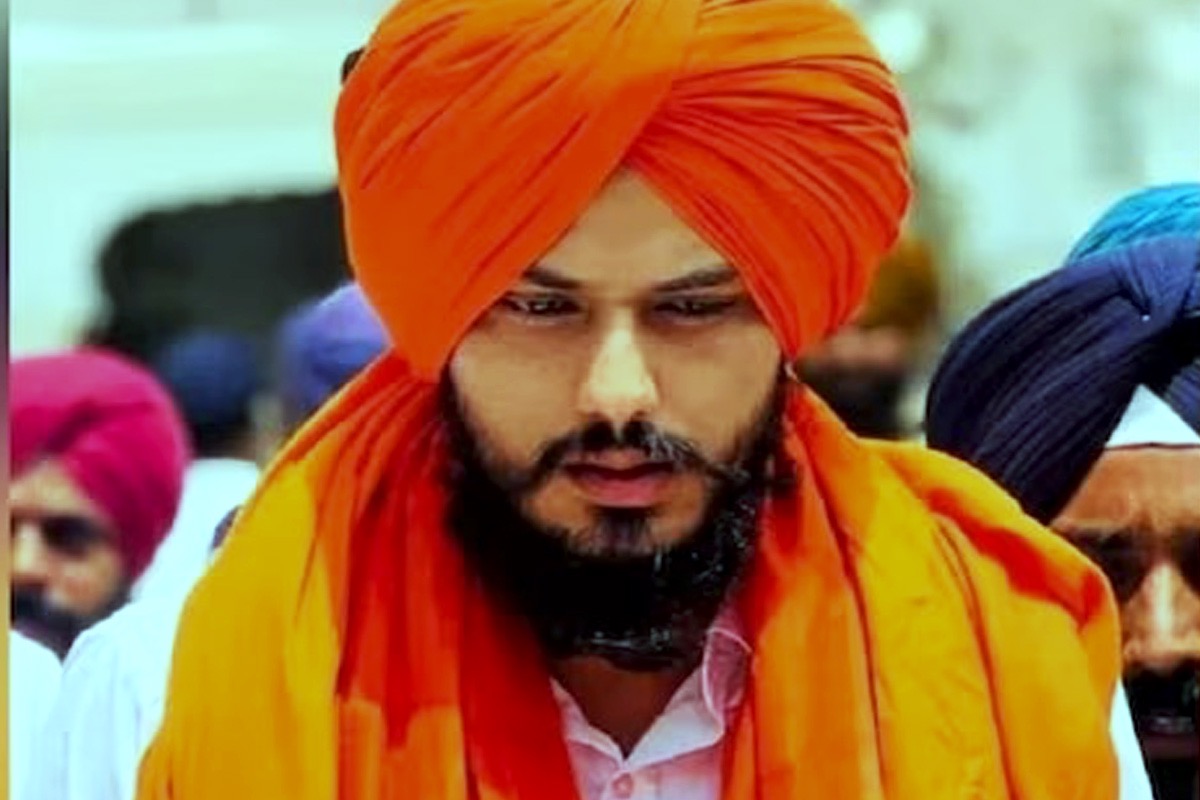In a massive crackdown on Khalistan sympathiser ‘Waris Punjab De’, Punjab Police arrested 78 people, detained many others while its chief Amritpal Singh – said to be linked to Pakistan’s spy agency ISI – is on the run, it said on Saturday.
A massive manhunt has been launched to nab Amritpal, who became the head of the outfit after returning from Dubai last year, and his associates, the police said.
The state police said that it “launched a massive state-wide cordon and search operations in the state against elements of Waris Punjab De (WPD)”.
“On Saturday afternoon, several activities of WPD were intercepted by the police at the Shahkot-Malsian road in Jalandhar district and seven persons were arrested on the spot. Several others including Amritpal Singh are on the run and a massive manhunt has been launched to nab them,” said a police spokesperson.
During the state-wide operation, nine weapons, including one .315 bore rifle, seven rifles of 12 bore, one revolver and 373 live cartridges of different caliber have been recovered so far.
The spokesperson said, “WPD elements are involved in four criminal cases relating to spreading disharmony among classes, attempt to murder, attack on police persons and creating obstructions in the lawful discharge of duties of public servants.”
Amritpal shot to the limelight after hundreds of his sword-brandishing young supporters stormed Ajnala police station in Amritsar, demanding the release of one of his key aides – Lovepreet Singh Tufan, who was arrested in a kidnapping case. They pushed police barricades and attacked policemen. At least six policemen were injured in the resulting clashes.
The police said that the crackdown was launched based on the FIR lodged in Amritsar district for attack on Ajnala police station in February.
“All persons involved in criminal offences shall be dealt in accordance with law and all persons wanted by the police should offer themselves to the process of law. Their constitutional rights of legal defence shall be protected,” the police spokesperson added.
“All the citizens are requested not to pay heed to fake news and rumours. Situation in the state is completely stable. All persons indulging in mischievous activities for disturbing peace and harmony in the state shall be dealt with strictly,” he appealed in a statement.
Meanwhile, Internet services have been suspended in several districts of the state to avoid rumours and any law-and-order situation.
“All mobile internet services, all SMS services (except banking & mobile recharge) and all dongle services provided on mobile networks, except the voice call, in the territorial jurisdiction of Punjab shall be suspended from 18th March (12:00 hours) to 19th March (12:00 hours) in the interest of public safety,” said Punjab’s department of home affairs and justice.
Born in 1993 and plus two pass out, Amritpal Singh dramatically rose to prominence in Punjab’s religiopolitical scene after returning from Dubai to become the chief of ‘Waris Punjab De’ after the death of its founder actor Deep Sidhu in a road accident last year.
Several reports quoting intelligence agencies said that he has been planted by Pakistan spy agency Inter-Services Intelligence (ISI) to disturb peace and harmony in Punjab, which has been, by large, peaceful after the killing of Khalistani militant Jarnail Singh Bhindranwale in 1984.
Amritpal calls himself a devout follower of Bhindranwale and dresses like him. Soon after taking over the reins of ‘Waris Punjab De’, he addressed a huge gathering at Bhindranwale’s native village Rode in Moga district.
“We all (Punjabis) are still slaves. Those who think we are ‘azad’ (free) should consult a doctor. We have to fight for freedom. Our waters are being looted. Our Guru is being disrespected,” he thundered from the stage.
Under pressure, the Punjab Police gave in to Amaritpal’s demand and released Lovepreet a day after.
The clashes between members of “Waris Punjab De” and the police brought back memories of militancy years in Punjab and the peak of the Khalistani movement in the 90s.

















